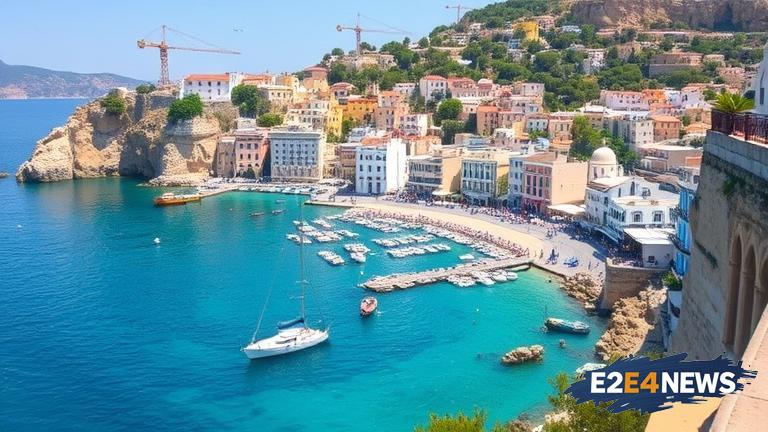The Greek economy has been facing significant challenges in recent years, and one of the most notable effects is the rising cost of living. This has led to a shift in the way people approach their leisure time, particularly when it comes to visiting the country’s iconic beaches. Instead of planning extended vacations to destinations like Mykonos or Santorini, many Greeks are now opting for day trips to nearby beaches. This trend is not only a result of financial constraints but also a desire to still experience the beauty of Greece’s coastline without breaking the bank. The country’s beaches are renowned for their crystal-clear waters, powdery sand, and picturesque surroundings, making them a major draw for both locals and tourists. However, the increasing prices of accommodations, food, and activities have made it difficult for many Greeks to afford a traditional beach vacation. Day trips, on the other hand, offer a more affordable alternative, allowing people to still enjoy the sun, sea, and sand without the hefty price tag. This shift in behavior is also having an impact on the local economy, with businesses near popular day-trip destinations seeing an increase in customers. While this may provide a boost to some local economies, it also raises concerns about the potential strain on these areas, particularly during peak season. Furthermore, the rise of day trips may also lead to increased traffic and congestion in these areas, potentially detracting from the overall experience. Despite these challenges, many Greeks are making the most of their day trips, packing picnics, playing games, and enjoying quality time with family and friends. The Greek government has also taken steps to promote tourism and support local businesses, recognizing the importance of the industry to the country’s economy. However, more needs to be done to address the underlying issues driving the shift towards day trips, including the high cost of living and the need for more affordable accommodation options. As the summer months come to a close, it remains to be seen how this trend will evolve in the coming years. Will Greeks continue to opt for day trips, or will they find alternative ways to experience their country’s beautiful beaches? Only time will tell, but for now, it’s clear that the traditional beach vacation is no longer a viable option for many. The impact of this shift will be felt not only by individuals but also by the local economy, as businesses adapt to the changing needs and preferences of their customers. In addition to the economic implications, there are also environmental concerns to consider, particularly in areas that are prone to overcrowding and pollution. To mitigate these effects, it’s essential to implement sustainable tourism practices and invest in infrastructure that can support the increased demand for day trips. By doing so, Greece can ensure that its beautiful beaches remain a source of enjoyment for both locals and tourists, while also protecting the environment and supporting local communities. The future of Greece’s tourism industry depends on finding a balance between affordability, sustainability, and quality, and it will be interesting to see how the country navigates these challenges in the years to come. As the demand for day trips continues to grow, it’s likely that we’ll see new businesses and services emerge to cater to this trend, offering innovative solutions and experiences that combine affordability with quality. Ultimately, the key to success will lie in creating a tourism industry that is accessible, sustainable, and beneficial to all stakeholders involved.
